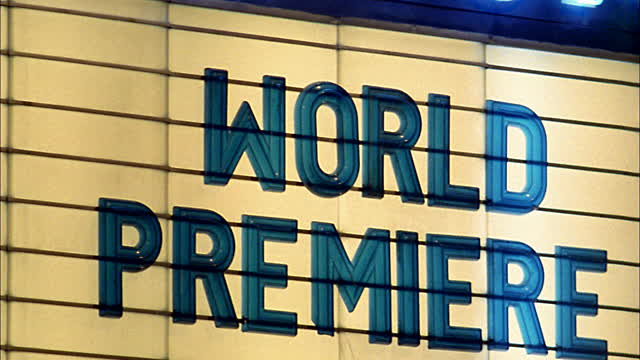
Hollywood. It’s harder than it looks. No, harder.
Everybody and their cousin has an idea for a movie or television show. Some of them have a lot (of ideas, that is, not cousins).
Well, sure they do, ideas are the easy part (a dime a dozen used to be the going rate, not really sure where we are now with inflation, Brexit, and the presidential election). The hard part, of course, is writing them down. Even harder? Writing them well.
But let’s say you’ve done all that. You’ve written three acts in the proper format. You’ve gone all-in with a beginning, middle, and an end. Skillfully executed from “Fade In” to “Fade Out.”
Are you ready to be the next Lawrence Kasdan, Shonda Rhimes, or J.J. Abrams?
Don’t be ridiculous. If you’re looking to pursue a career as a screenwriter, you’ve only just begun to fight.
Let’s be honest for a moment (just a moment, though, this is the entertainment industry after all). Being a professional screenwriter is not easy. It’s not easy to do the job, and most of the time it’s even harder to get it in the first place.
Even in the best-case-scenario, you don’t get to just dream up stories, collect a check, and have somebody produce and distribute your “masterpiece” to the world. There are filters. A lot of filters.

The thirtieth draft is the charm…
Let’s start with notes.
Your “finished” draft is never going to be the one that gets shot. Not before a small army of other people chime in with their two cents first.
What’s it like to run the notes gauntlet?
For one, a lot of people who give them don’t take into consideration the feelings of the writer on the receiving end. Some of them are downright – and unnecessarily – mean. Some notes are kind of dumb. Of course, there are nice, thoughtful, insightful notes too. But the majority of them are not.
On the balance, the notes you get will be someone’s subjective opinions of what they think would be better. And if they’re paying, it’s up to you to not only implement them, but to make them work well and seamlessly. You can push back here and there, but if you push back too frequently, or too vehemently, that job is not likely to end well.
Okay, let’s say you’ve gotten a paying job, weathered the development storm and got your first professional credit. From here on in, the phone just starts ringing, and all you have to do is sift through the lucrative offers, right?
I think you know the answer to that already.
If getting your first professional gig is tough, continuing to get others and make a living at it is tough plus. To even have a chance, you obviously need to be a decent writer (ideally much better than that), but you also need to be a good person to work with – friendly and personable, and generally hygienic – if you want those people to consider hiring you again (this also comes back to how well you dealt with/incorporated their notes).
You also have to pray that the people who do come to regularly hire you don’t leave the business, get fired, become your competition, or – the most difficult to overcome – die (this has really happened to me and my partners on more than one occasion. Tragic, of course, but also a bit of a career letdown).
Imagine now, that you’ve succeeded in building a network and you’re getting jobs here and there. Even then you might not get the volume you need to make a living. Can you still be a working screenwriter? There’s no reason why not, but it requires that much more drive.
For much of my career, I’ve had to supplement my writing income with income from somewhere else. The classic “day job.” In fact, it’s often the reverse, with my writing work supplementing my full-time salary.
In that scenario, you need to find the energy to work that primary job while also managing the rest of your “free” time so that you can be creative while still meeting deadlines. Not easy.
So, the question now, is – can you do that? Can you survive and thrive, and not go on a ten state killing spree while dealing with all these obstacles (not to mention the alarming amount of toxic people this business seems to attract)?
Again. Do you really want to do this?

A journey to a thousand Klieg lights begins with a single script.
If it’s something you’re desperate to do… If you can’t imagine going through life without at least taking a chance… Then maybe this is the business for you.
Are you tough, smart, creative and hardworking? Or at least willing to strive toward those goals?
Do you get excited about the stories you write? Are you driven by the idea of sharing them with the world? Getting a laugh? Drawing a tear? Having that first credit glow to life onscreen, and that IMDb page fill up with titles?
During the dark times of my career (and there have been more than I care to remember, thanks a lot for bringing it up), I’ve considered quitting. Then I’d think about what my life would be like without writing and… I just couldn’t. I knew I’d feel disappointed in myself and regret “giving up.” It would haunt me.
The bottom line here, and the important thing to think about, is whether or not you’re up for an ongoing struggle. Because if this isn’t something that you really want to do, that you’re willing to take quite a beating for, then save yourself the trouble and do something else that you are passionate and driven to do.
The rest of us will be happy with just a little less competition.
![[TEXTSMITH] BLOG](https://blog.jameshereth.com/wp-content/uploads/2016/07/cropped-cropped-BulbsPlus.jpg)
I think I might give this screenwriting thing a shot. It sounds like a cinch! 🙂
For you, Austin? Piece of cake indeed.